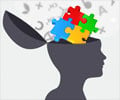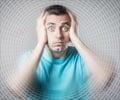Glossary
Panic attacks: Periods of intense fear or anxiety that occurs suddenly. Physiological symptoms like heart palpitations, shortness of breath and dizziness are the symptoms of panic attack.Behavior modification: A scheduled approach of modifying the behavior of an individual that rewards desired behavior and punishes undesirable behavior.
Phobia: A type of anxiety disorder characterized by overwhelming and unreasonable fear of an object, place, person or situation that does not pose a real danger, often being considered as irrational.
Anxiety: A general term used for several emotional disorders that cause nervousness, fear, apprehension and worrying. Prolonged or irrational anxiety is considered to be a neurotic disorder.
Neurosis: When an individual experiences extreme anxiety in certain situations, they adopt certain unhealthy reactions to cope up. Neurosis is characterized by panic attacks.
Psychosis: A severe personality disorder involving loss of contact with reality, characterized by occurrences of delusions and hallucinations.
Delusions: Holding on to false or unusual beliefs that are not shared by any religion or person. These beliefs would be illogical, absurd and lack supporting evidence. For example, a person who thinks that he flew to the sun and came back.
Hallucinations: Hearing, seeing or feeling things that are actually not there. For Example: the person may hear voices telling him that a certain person will be poisoning him.













